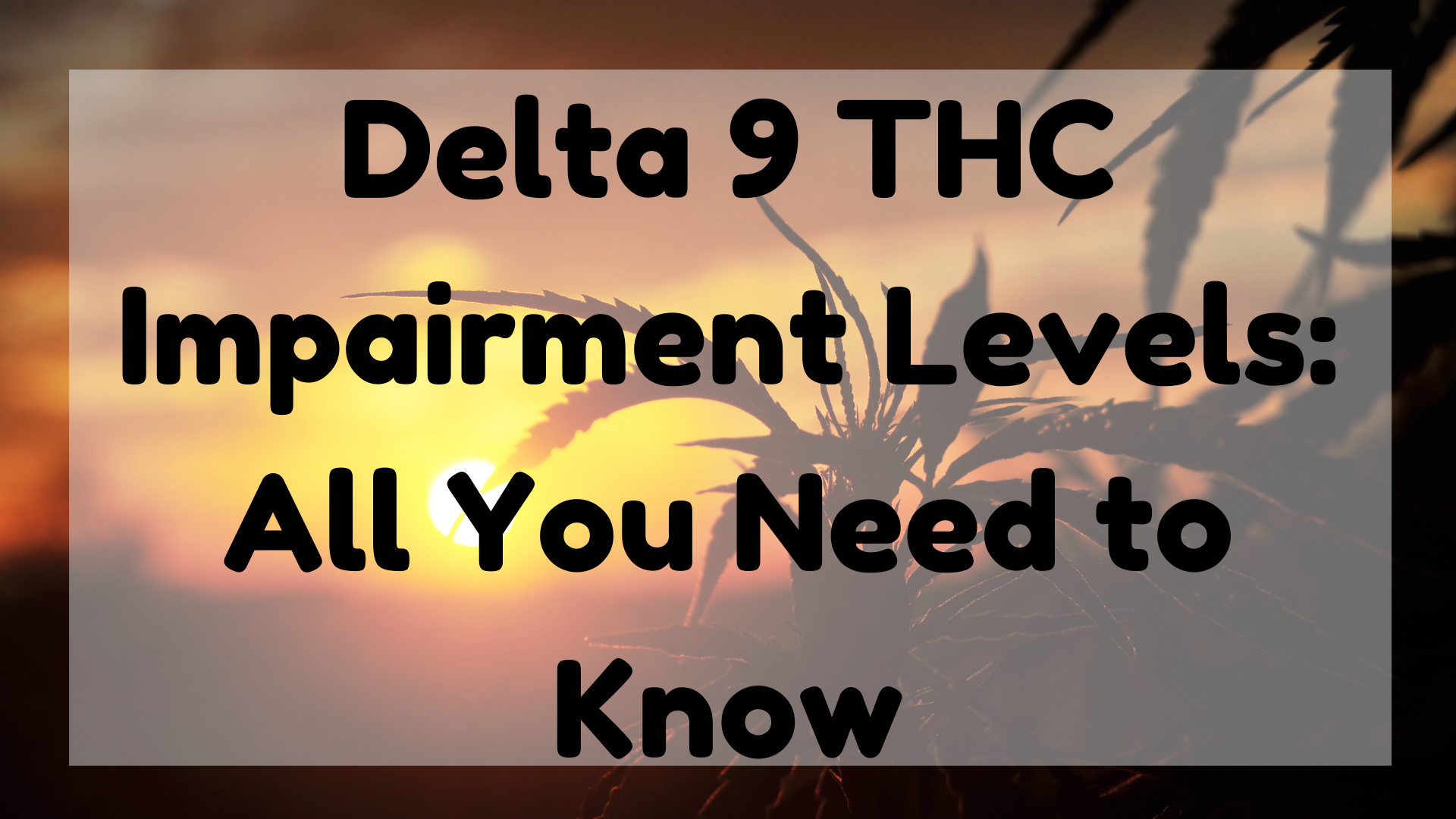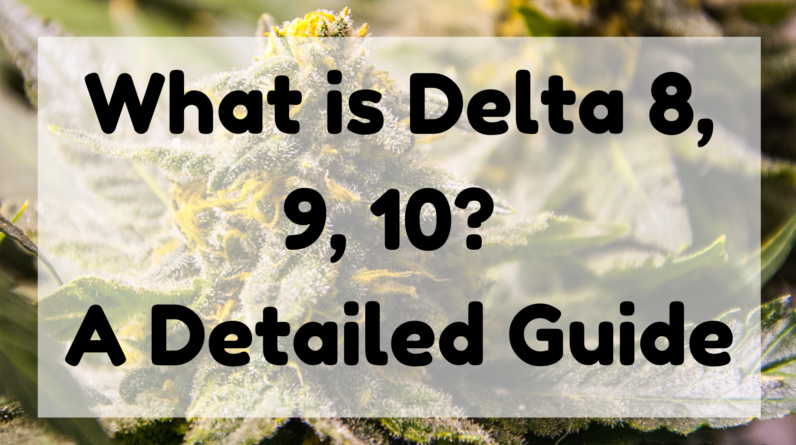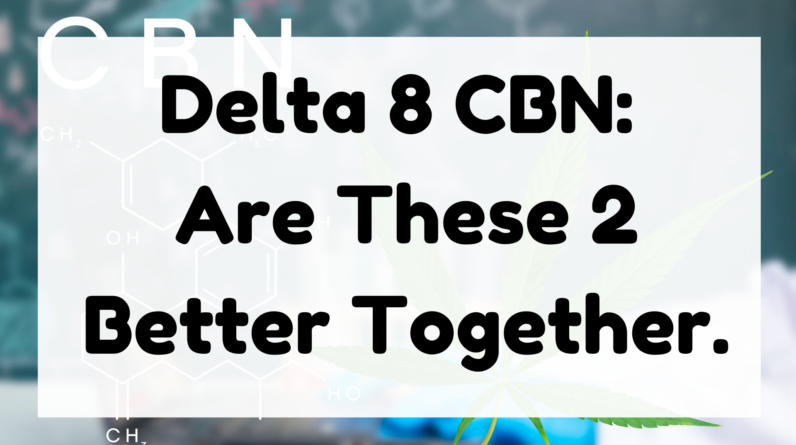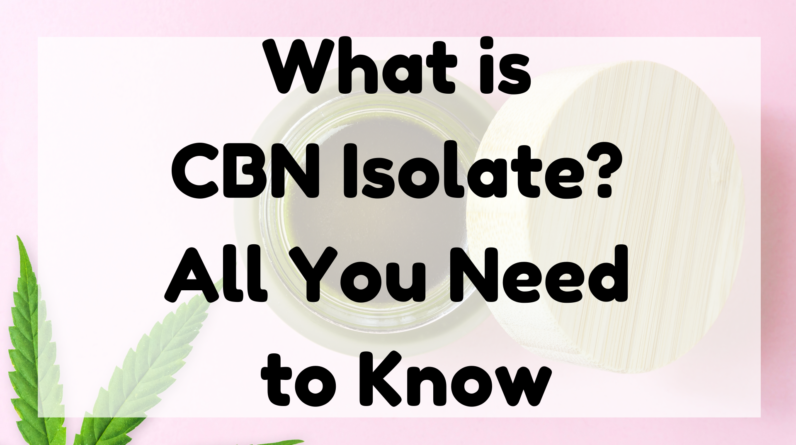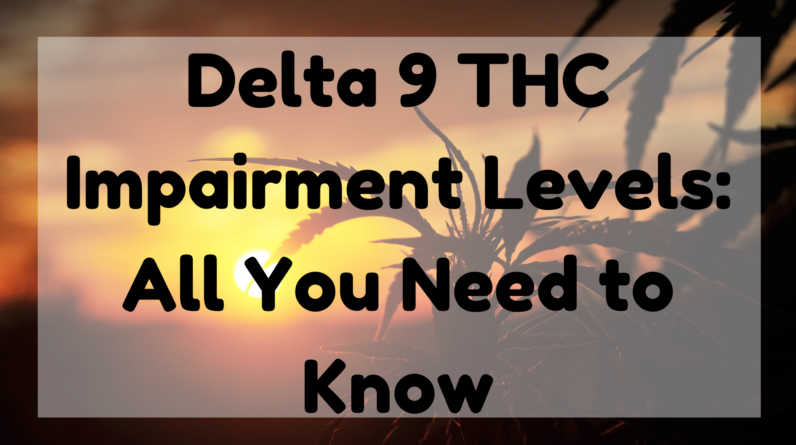
Delta 9 THC Impairment Levels: All You Need to Know
The herbal drug marijuana (Cannabis sativa) is known as cannabis.
The chemicals it contains are delta-9-tetrahydrocannabinol (THC) and cannabidiol (CBD).
Cannabis contains more than 100 cannabinoids, but THC and CBD have been studied the most.
Plant leaves and flowers contain the highest levels of cannabinoids.
The following post explains my take on the delta 9 THC impairment levels in the blood.
Also, we will talk about some impacts and effects of Delta 9 THC.
In general, readings of 2 to 5 ng/ml THC in whole blood would be okay for even driving but readings of over 5 ng/ml delta 9 THC levels are not okay for driving and a normal work routine.
Delta 9 THC
Cannabis and marijuana contain the cannabinoid tetrahydrocannabinol, also known as delta-9 THC.
Despite belonging to the same plant family, cannabis and hemp contain different cannabinoids.
In addition to being psychoactive and having potential therapeutic properties, it has been speculated that it interacts with the ECS somehow.
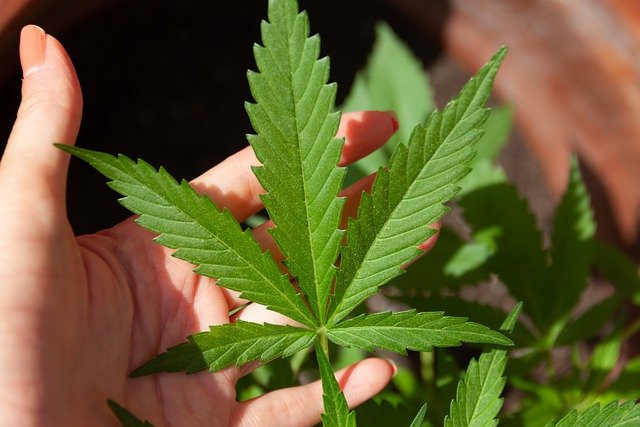
Delta-9 THC has therapeutic properties, and people are increasingly using it for its intoxicating properties, but there can be unwanted side effects from using it regularly and widely.
The use of cannabis can have serious side effects, including increased anxiety or paranoia in some users and no negative side effects in others.
You may not be a good candidate for delta-9, but delta-8 could offer a solution with reduced psychoactivity abilities.
The psychoactive component of THC is dopamine, which causes euphoria in the brain. Each individual’s response will differ.
Although THC can have pleasant effects, it can also have adverse side effects.
Anxiety, memory problems, hallucinations, and delusions are among the symptoms people can experience sometimes.
What is a high THC level in blood?
Using data from all available research studies, the Lambert Initiative at the University of Sydney analyzed tetrahydrocannabinol (THC), the psychoactive ingredient of cannabis, and its relationship to driving performance.
THC levels in the blood and oral fluids are usually false indicators of cannabis impairment.
In contrast, driving impairment and blood alcohol concentrations have a much stronger correlation.
Their study has implications for the application of drug-driving regulations around the world.
Regular cannabis users had no significant relationship with higher blood THC levels, whereas occasional cannabis users had a weak association.
A blood or oral fluid THC level is not a good indicator of impairment caused by cannabis-THC.
The study analyzed 28 publications covering ingestion or inhalation of cannabis.
After that, they studied the effects of THC on blood and oral fluid THC levels and on driving performance (or other driving-related skills, such as reaction time/divided attention).
A significant correlation between oral fluid and blood THC concentrations and impairment has been found in cannabis users who are infrequent or occasional users.
However, most of these relationships were described as “weak” by the researchers.
There was no significant connection between blood THC concentration and driving performance for ‘regular’ (weekly or more often) cannabis users.
It is suggested that blood and saliva THC concentrations are inconclusive signs of intoxication.
Percentage of Delta 9 THC in today’s products
A Delta 9-THC level of above 1 ng/mL in the blood indicates recent cannabis use in occasional cannabis users.
According to the Drug Enforcement Administration, marijuana is the most commonly misused substance in the US, following alcohol and tobacco.
THC tolerance and dependence have been documented extensively in various studies, despite the widely held belief that it is not addictive.
A NIDA study estimates that 30 percent of marijuana users become addicted, and consuming marijuana before the age of 18, when the brain is still developing, increases the risk of developing marijuana use disorders by four- to sevenfold.
When you can’t use marijuana, you have withdrawal symptoms and a preoccupation with the drug.
According to the National Institute on Drug Abuse (NIDA), today’s marijuana is much more potent, with a THC content of 9.6% on average.
The average THC level of marijuana in the early 1990s was about 4%.
If you want to use any delta 9 THC, I would recommend the following two products because they have less percentage of THC.
1. KIWI MIXER PREMIUM DELTA 9 THC GUMMIES
Besides being delicious, this kiwi mix also will feel refreshing and uplifting to your senses.
Hemp-derived Delta-9 THC is present in 10mg of each of these 6-gram gummies.
In other words, our gummies contain 0.25 percent delta-9-THC, making them fully legal under the 2018 Farm Bill.
To start establishing individual tolerance, consume 1/2 of one gummy.
To achieve the desired effect, increase the dose in increments.
In comparison to its competitors, Delta Extrax uses fewer additional ingredients.
Taking the cleanest terpenes and infusing them into products, they source only the best Delta 9 hemp distillate.
The raw form and the finished product of all Delta 9 products are laboratory tested for quality.
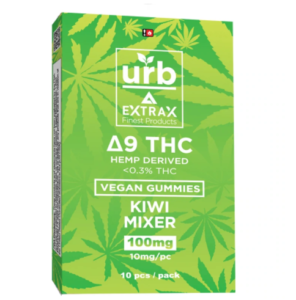
2. Koi Delta 9 CBD Gummies
Delta-9 THC and CBD are harmonized 2:1 in Koi Delta 9 THC Gummies to provide a more balanced, well-balanced high.
As partners, these hemp-derived cannabinoids can help you bring your thoughts to a pause by soothing them.
You can choose from five delicious flavors, making these gummies a great way to relax while staying present.
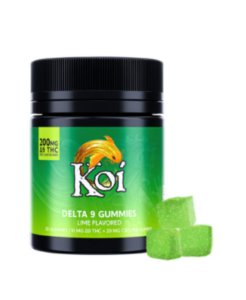
Conclusions
According to extensive research, THC has been associated with an elevated risk of psychosis among adolescents.
This condition is also associated with increased anxiety, decreased memory formation, and learning impairment.
But CBD provides some of those benefits and reduces anxiety, improving learning and functioning as an antipsychotic in animals, though the majority of research has focused on humans.
CBD appears to reduce the negative effects of THC when taken together with marijuana use.
Meta-analyses, which combine the outcomes of many different studies, have discovered some evidence that THC is neurotoxic.
Those who do not have psychosis but use marijuana regularly have different brain structures.
The prefrontal cortex has a reduced gray matter volume in chronic users, but a compensatory response appears to be in play.
The density of fibrous connections among remaining neurons increases, partially or completely canceling out the neurotoxicity.
References
- https://www.nature.com/articles/s41398-018-0191-x
- https://adai.uw.edu/pubs/pdf/2016marijuanadriving_testing.pdf
- https://pubmed.ncbi.nlm.nih.gov/6267648/#:~:text=To%20achieve%20a%20maximum%20desired,7%25%20for%20light%20users).
- https://pubmed.ncbi.nlm.nih.gov/30149280/
NEXT Delta 9 THC Reddit
Legal and Medical Disclaimer
Information provided on the site is for educational purposes only, and does not substitute for professional medical advice.
You MUST consult a medical professional or healthcare provider if seeking medical advice, diagnoses, or treatment.
Additionally, you must consult your local and federal laws regarding the legality of buying CBD and THC products.
We do not provide any legal advise.


